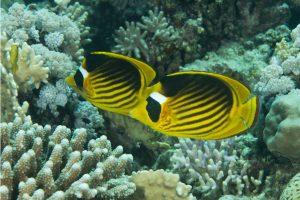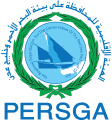In Collaboration between the Regional Organization for the Conservation of Environment of the Red Sea and Gulf of Aden PERSGA and the Djiboutian Ministry of Housing and Urbanism and Environment MHUE, a National Workshop on monitoring indicators of the impact of wastewater on coral reef has been organized. The workshop activities took place on Monday 24th October 2016 at the Peoples Palace in the city of Djibouti under the patronage of His Excellency the Secretary General of MHUE Mr. Deni Abdullah Omar. It was attended by about forty participants representing different stakeholders concerned with the coastal and marine environment in Djibouti.
In addition to serving the objectives of the SEM Project implemented in collaboration between PERSGA and the World Bank and funded by GEF, Component 3 in particular, this workshop fulfils the objectives of the Project Wastewater Management in Coastal Cities on the Red Sea and Gulf of Aden, which is implemented by PERSGA in collaboration with the United Nations Environment Program UNEP. The main objective of this workshop was to discuss the guidelines prepared by PERSGA in Arabic, English and French languages to monitor the indicators of wastewater impact on coral reef, which focus on the involvement of different stakeholders in monitoring activities to raise environmental awareness, and to promote their active participation in the protection of coastal and marine resources, which comprise the main source of livelihood for coastal communities.
The Manual contains five modules demonstrating a scientific model that can be applied in monitoring impacts of a stressor wastewater discharge on a recipient coral reef the coastal and marine environment. The first module demonstrates basic terms, while the second and third modules discuss monitoring causes and effects, the fourth module addresses information management and the fifth module discusses the use of information in making decision. The Guidelines complement PERSGA work on promoting management applying Ecosystem-based principles. It is hoped that through the SEM Project and these guidelines that harmonized national monitoring programs could be achieved to feed in a regional program aiming at providing the necessary information for stakeholders and policy makers involved in marine and coastal resource management and promote employing the scientific approach as a basis in planning and developing relevant strategies.
The workshop activities were coordinated by the SEM Project National Coordinator Mr. Aden Hassan Elmi, adviser to the Minister of environment. The workshop was facilitated by a national expert, Dr. Musa Mahdi of the National Research Institute in Djibouti CERD. Thus the workshop helped in paving the way for conducting monitoring activities in Djibouti. Formation of monitoring teams to carry out environmental socioeconomic monitoring through an ecosystem approach “SEM” in the Republic of Djibouti project has been discussed. This is considered a significant step forward in the in the implementation of the program, which was contracted with the Ministry of Environment in March 2016
More to find

National Workshop on Environmental Monitoring and Communicating with Stakeholders Applying …

Consultation Mission in Dungunab and Mukkawar Island National Park Meeting …

Follow up of Monitoring Activities and Procurement of Monitoring Equipment



